Cape Cod Poetry: Putting words to a beautiful but troubled world
- Oops!Something went wrong.Please try again later.
Editor's note: This story was changed April 17 to correct the spelling of poet Al Starkey's name and fix a production error with his poem and the one written by Aline Lindemann.
In this month's Cape Cod Poetry, the winning poets look at everything from appreciating nature to living with aging, but there are also musings on contemporary issues including COVID-19's legacy and the war in Ukraine.
Below are winning poems chosen by a volunteer panel of judges who are published poets and editors. Once a month, on the third Sunday, the Cape Cod Times publishes poems from readers. See the box below for details on how to submit your own poems for consideration.
Also, in honor of National Poetry month, the Steeple Street Poets of Mashpee will host an open poetry reading at the West Falmouth Library, 575 West Falmouth Hwy., on Saturday, April 23 from 4 to 5:30 p.m. All local poets are welcome to participate. Each poet should bring one poem to read on the theme of place. The library will provide beverages, but participants are welcome to bring food to share.
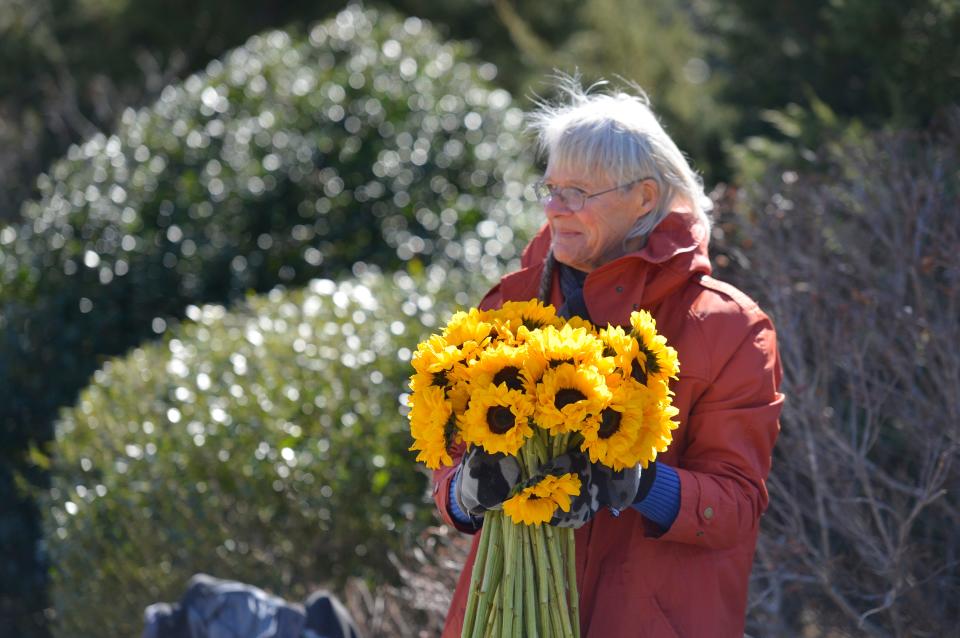
Christina Laurie
A 20-plus resident of Falmouth, Christina Laurie has published four books of poetry, the last being "Purr Poems: Kittens and Cats," with more than 70 poems about cats. Mother of three and grandmother of nine, she belongs to Society of Children's Book Writers and Illustrators, Steeple Street Poets and the National League of American Pen Women.
![Christina Laurie [Courtesy of Christina Laurie]](https://s.yimg.com/ny/api/res/1.2/weI._hoVXwfOehHVU3hqIA--/YXBwaWQ9aGlnaGxhbmRlcjt3PTk2MDtoPTc5Mg--/https://media.zenfs.com/en/cape-cod-times/9f882060d79622878a564e377533b1b2)
COVID-19
By Christina Laurie
Nothing was remembered, nothing forgotten
When we awoke, the enemy attacked. (anonymous)
Our window sills were wet
from the rain last night.
Birds settled on stone walls
then scattered into vine-entwined trees.
But peace did not reign
and life was broken in a moment.
Nothing was accepted, nothing looked backward.
Grandfather clock separated hour from hour,
hands moving slowly.
No one drew into deserted streets
yet animals moved about.
Stores boarded up, dark, emptied.
Faces with expressionless eyes
covered by masks or bandanas,
Still we washed our hands so often
our skin wrinkled and knuckles bled.
Nothing was remembered, nothing forgotten.
When we awoke, the enemy attacked.
Soon we were separated by six feet
and streets and houses were silent.
No hand clasping hands, no hugs shared
but we could bump elbows.
We have withdrawn into our private lives.
Neighbors have left their rain-soaked windows.
We cannot eat together,
nor dance, nor walk arm in arm.
We sleep alone in the depth of moonless nights
dreaming of sunny days.
We have learned the beginning,
we do not know yet where it will end.
We attempt to create a new life,
but the old keeps haunting our nights
as we linger on the edge of oblivion.
Kathy Shorr
Kathy Shorr lives in Wellfleet, and is on the staff of the Center for Coastal Studies.
Inspiration: "I didn’t fall in love with Provincetown immediately, and it didn’t go out of its way to welcome me, just another washashore. Truth be told, I didn’t attend the 1991 event depicted in the poem. But it has stuck with me as such a Provincetown moment, which epitomizes the tenacity and spirit of so many people who’ve fought to make art and make a living here."
![Kathy Shorr in Jerusalem [Courtesy of Kathy Shorr]](https://s.yimg.com/ny/api/res/1.2/QExBLz5ltSMe_Z6BcudNCA--/YXBwaWQ9aGlnaGxhbmRlcjt3PTk2MDtoPTcyMA--/https://media.zenfs.com/en/cape-cod-times/0de0747ace9b15755e8190ca751e36e7)
“The Night I Fell in Love with Provincetown”
By Kathy Shorr
The Night I Fell in Love with Provincetown
was when Jane Kogan rose from her seat,
part fury, part hope, her 20-something
year-old painting up for auction, life-size
Roger Skillings, caught in ‘68, slouched
against the doorway of the Foc’sle bar,
long-ago given-up cigarette dangling
from his still-young chapped lips, one
hand dipped into the pocket of snug jeans.
Jane tipped the mike down to her face. She said,
When Walter Chrysler opened his museum
in town he asked to see this painting said
maybe he’d add it to his wall. But Walter —
junior, not his daddy automaker —
was never great at paying artists. One
day he swept new patrons through the door,
the next, he closed, never answered phones,
moved on to Norfolk, paintings hostages
in permanent locked storage. I didn’t even have
a receipt. Chrysler stole a lot of our paintings
like that. Tonight, I’m here to pay
my ransom. I’ll give twenty-five bucks and hope
no one bids against me.
The other paintings up for sale began
to whisper from the walls. Even
people in the sweaty back refused
to wave their fans and be mistaken
for a scab, crossing the picket line
of art. The auctioneer: did he think
he even had a chance? At last
his gavel rapped. The hall let out a breath
and everyone began to whoop and clap,
while Jane’s hand reached to touch her scuffed-
up canvas friend, as if she were Black Beauty’s
Little Joe, grown up, stroking the old and broken
auction horse’s mid-back scar, the unmistakable
small knot, same spot on his beloved
long-lost childhood horse. Beauty cannot speak
but bends his grateful neck, while Roger
flicks his cigarette to thank the crowd.
Rosemary Dunn Moeller
Rosemary Dunn Moeller writes to make connections with others, to reflect on time passages, and to marvel at immediate worlds. She says she is satisfied with family, journeys and blessings, home and miracles of friendship.
Inspiration: "From New York to Dakota to Cape Cod, it's been a journey. I always think of myself as a city person in spite of being a farmwife for 45 years, (with 10 winters on Cape Cod). But this was the first time I felt wrong in a city, visiting my kids in Chicago. Ocean spray is a requirement for winter, hydrangeas for spring, beach roses for summer, red maples for autumn. The Cape has completely transformed my aesthetics, my senses rearranged by peninsular currents of airs and waters. I am consistently in love with my surroundings."
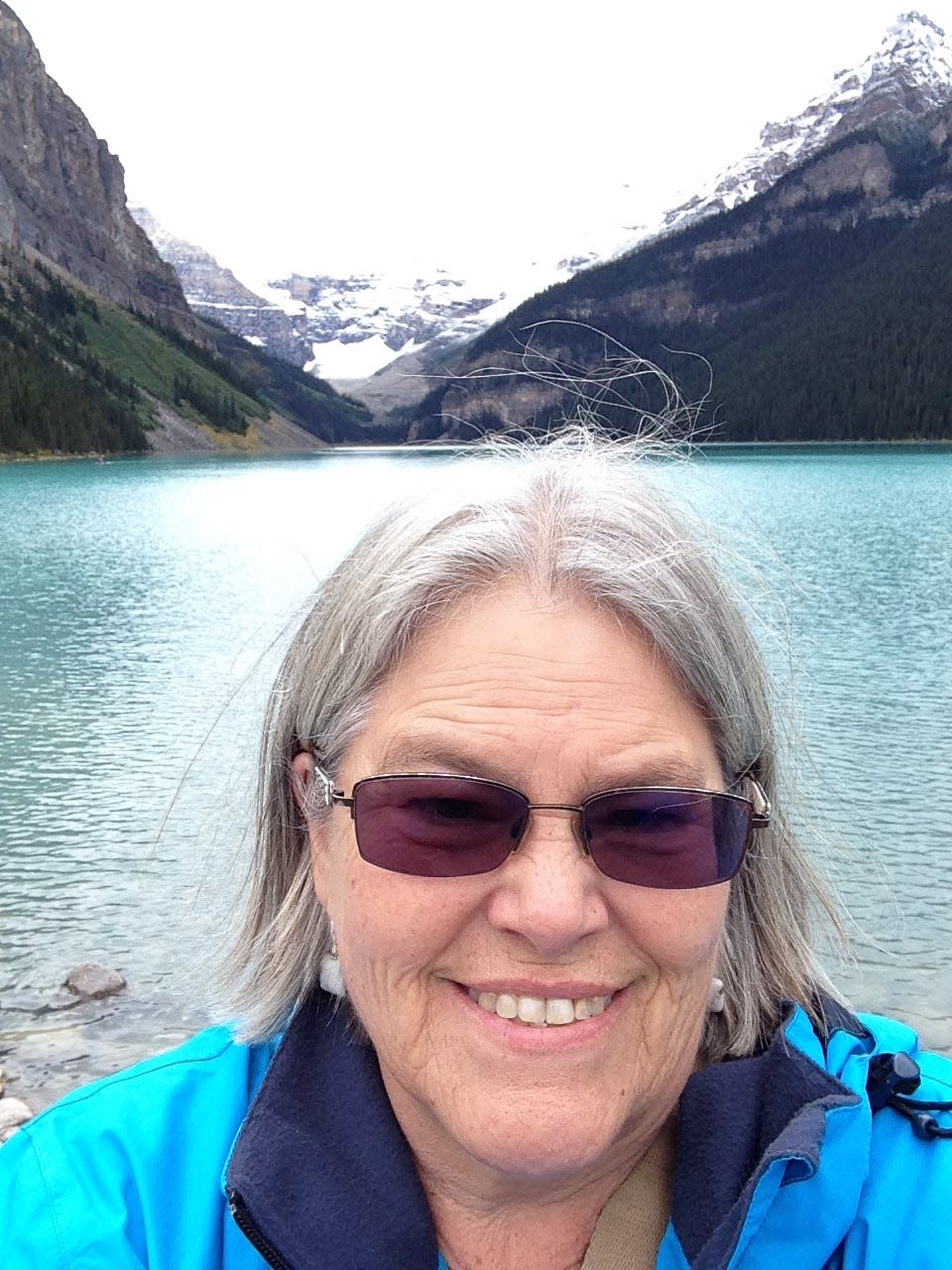
Love as Ephemeral as the Season
By Rosemary Moeller
What happened to birds crunching
seeds and suet, leaves and cedar
palmates rustling underfoot.
I need more than a park
I need an ocean shore, real sand
and soft breezes.
I want to hike trails, not sidewalks,
smell wood rotting in needle mulch,
not auto exhaust and sweet/sour litter.
Where did my city-love go; when
did my rural love take over my senses?
Church bells are better than fire sirens but
where’s the salt sea ferry docking horns.
I want water rocked pebbles and broken
seashells, compliments of gulls,
not pigeons’ droppings.
When did this change occur? Is it permanent
or ephemeral as autumn was this year?
I greet the solstice, new year of potential,
questing for spots of sensitivity
in this dotted cityscape.
Bill Holcombe
Bill Holcombe has engaged in tennis, writing and social activism in East Sandwich since retiring there in 2014.
Inspiration: "The poem “Tinnitus” was written in 2018 for the Writing Incubator workshop offered by Adult Lifelong Learning at Cape Cod Community College and read at Titcomb's Bookshop for National Poetry Month. Tinnitus joined my life in my senior decades and has been an unwelcome companion along with myriad orthopedic maladies. This poem comprises part of a series inspired by my bouts with the Three Lords of Buddhism: Old Age, Sickness, and Death."
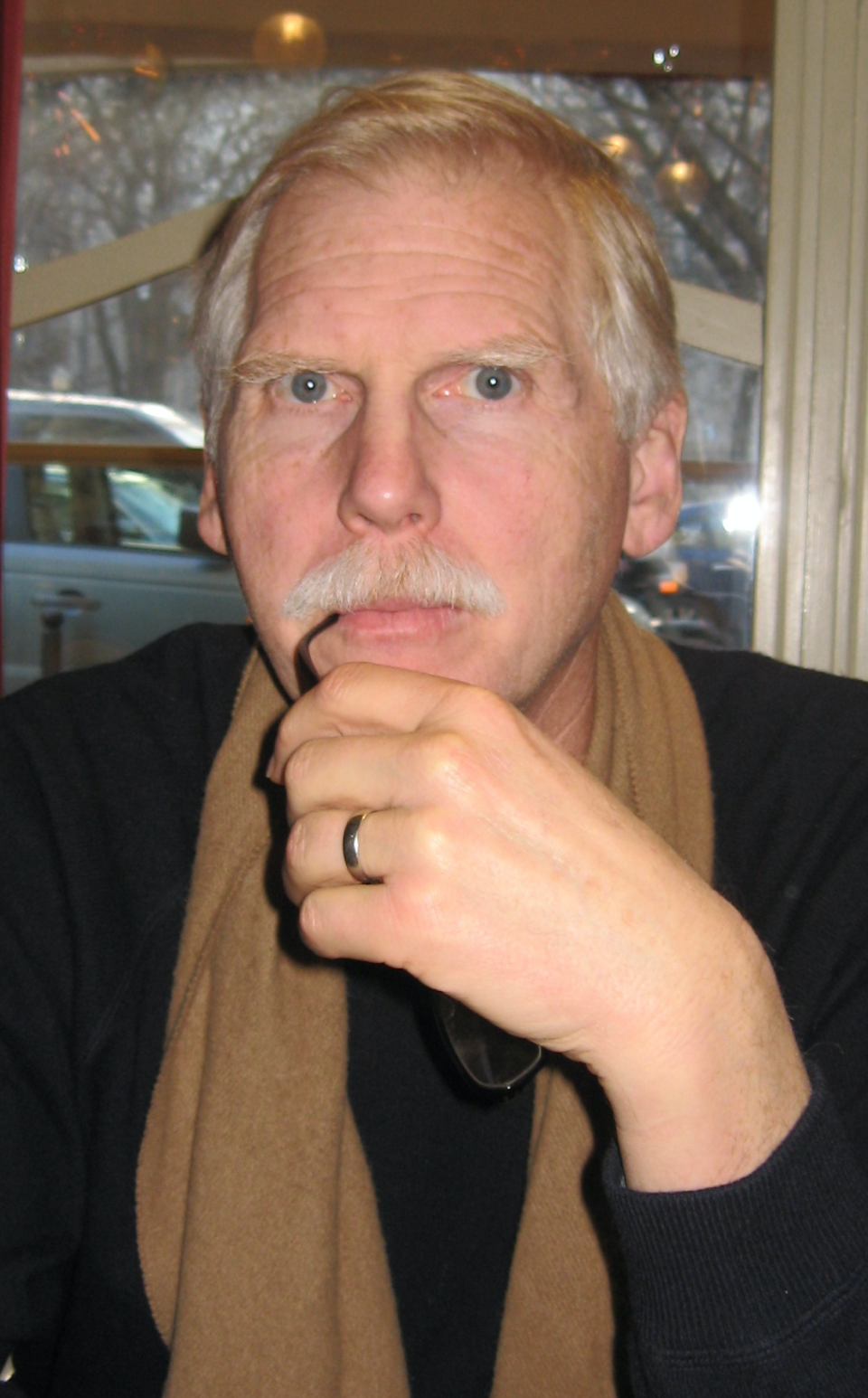
Tinnitus
By William S. Holcombe
How tiresome this litany of things going wrong with my body
now comes this buzzing this ringing
this sometimes high-pitched silly sound
sounding like an auditory death ray
from some bad dated sci-fi movie from the 1950s
with guys in cheesy space suits holding their ears
then falling over dead writhing, dying
eventually somehow someone proposed this could
be a teensy weensy bit of energy left over from the Big Bang
well, after trying multiple theories and re-testing
this turned out to be proven by someone using
math beyond my imagination.
So maybe that’s where my tinnitus comes from
I’d like to think so, so much more profound
and esoteric than that cosmic microwave background
that cooled remnant of the Big Bang
filling the entire universe with its average temperature
of “about” 2.725 Kelvin (that’s pretty darn cold, gang)
than some mundane combination of my own
old age, medication and high blood pressure.
(Optional Coda):
O Death won’t you rid me of this constant quotidian annoyance
take utility bills telemarketers mimicking my cell number
as some eschatological reversal of the Big Bang
my own private teleology bound up
in suffering and end of suffering deliver
final goodbye to these dad blamed sounds in my head?
Aline Lindemann
Aline Lindemann lives in Orleans. Her first poetry collection, titled "drift" and published by Sea Crow Press, is due to be released in late April.
Inspiration: "Like many of my poems, 'wrack' arose in response to the profound sense of solace I often experience during solitary walks along the shores of Cape Cod. I forage as I walk — sometimes for stones and shells, other times for answers – and I always manage to leave the beach with less on my mind (and more in my pockets) than when I arrived."
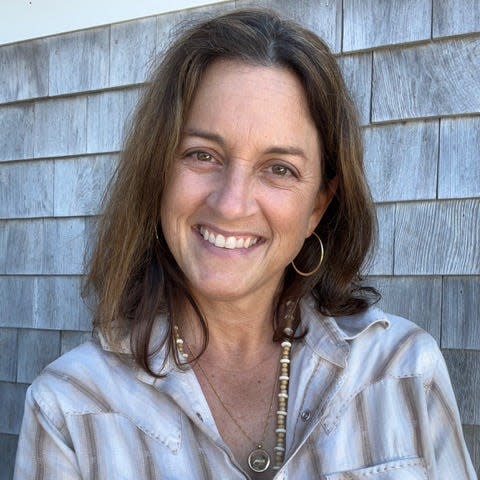
wrack
By Aline Lindemann
Shuffling along at high tide
as froth edges near
is useful when you have a knot
inside refusing to unravel.
Uncontained holiness lures you
along beach path softness
and the shh shh of the reeds tells truths,
as do exposed ribs of a dolphin carcass.
Gulls ride an updraft
and silver glints across the surface
of freshly wetted sand at the shoreline
but the wrack is where death leaves beauty behind.
Purple grooves of a mussel shell
turned over reveal ivory pearlessence
and tawny stacked ridges
of a whelk egg case curl askew
in withered eel grass.
Sometimes you’re in
and sometimes you’re cast aside.
Sometimes you reach and connect and it’s divine,
other times you’re tucked in and untouched.
And sometimes you’re just
a chalky old moon snail
standing alone.
Al Starkey
Al Starkey lives in Yarmouth Port and is the author of "Whistling Underwater."
Inspiration: "This poem is inspired by the devastating events taking place in Ukraine. It is an expression of my own heartache, bewilderment and confusion over how to respond to the suffering I am seeing. What’s happening there also brings me to the broader question of what it means to be human and how our understanding of that is shaping the way we live in this world."
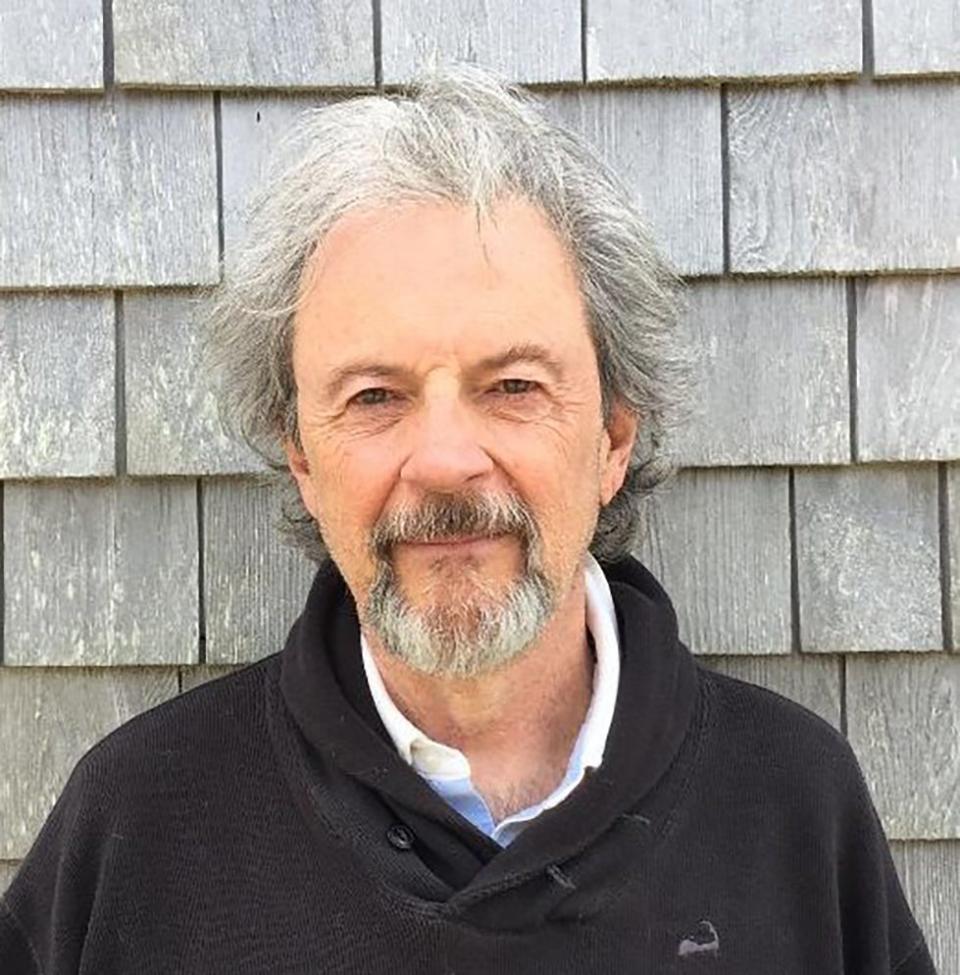
Taken Out of Darkness
By Al Starke
In our wakefulness there is no night.
Tomorrow will come out of nowhere
and its light will not hide annihilated life
taken out of darkness in a flash.
The morgues take up the hospital basements
where the living rush when the sirens sound.
They commune with the dead in the face of death
keening in the streets here, there and everywhere.
A gale slams slanting sleet into defiance.
The howling can be heard all the way from Kyiv
where the skeletal, screeching trees claw at clouds.
All shall be white, cried the gale, and so it was.
As if from a glass, a great beast drinks from my soul
leaving my wasted form framed in a cringing window
a witness to an afflicted world disgorging life.
Then the gale stopped as if imagination was taking a turn
from making mayhem to a meditation on stillness
as I was having a dream that you were dreaming of me
and the sky was being emptied of any ill will
so that darkness would somehow be lighter tonight.
The unwieldy has a way of wielding a way back to where
I inhabit an in-between place, impotent and anguished.
How might this day fall onto the scales of life?...
Outside now, big puff balls of snow drift by, witlessly.
Kathleen Geagan
Kathleen Geagan is a semi-retired nurse, wedding officiant and retreat facilitator. She lives in Brewster with her husband.
Inspiration: "Like many of my poems, this one came from a dream. It was inspired by my father who became uncharacteristically generous in his later years. Other images flowed from the image of throwing cash and caution to the wind."
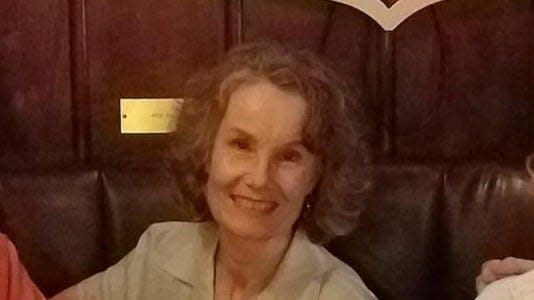
Madman In the Marketplace
By Kathleen Geagan
Like a madman in the marketplace
throwing fistfuls of bills sky high,
let silver spill, from pockets pour
forgive everyone
create an uproar.
Pirouette by precipice,
but in this take great care,
Love God,
make Him laugh,
tickle Him to the bone.
There is no risk in bitterness,
adventure lies in love alone.
Melanie Gallo
Melanie Gallo lives in West Barnstable and is a retired educator.
Inspiration: "I was watching an interview with a Ukrainian refugee. She told the reporter to 'Cherish the Sky.' I couldn't stop thinking about those powerful words and had to write about them."
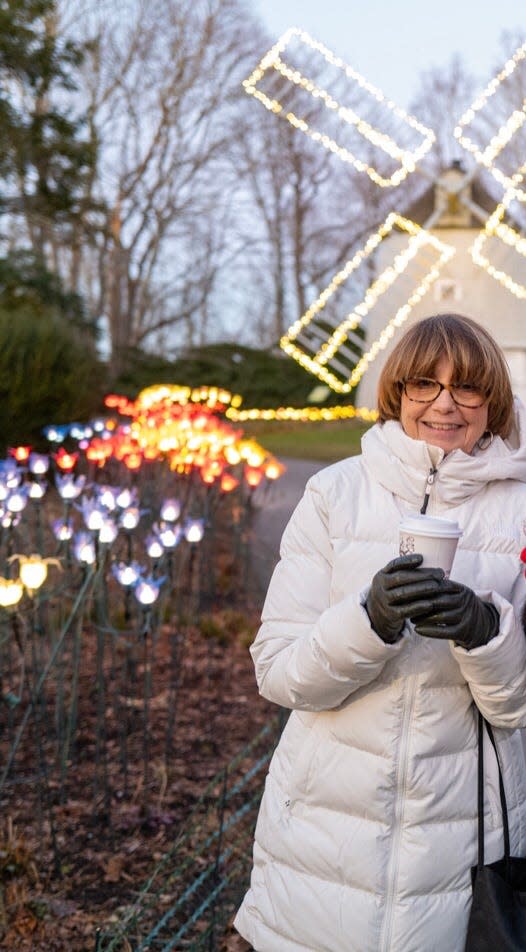
CHERISH
By Melanie Gallo
The evening news is visual sorrow
Difficult to watch as one man’s hate
Explodes in
Devastating loss of life and land
Millions flee.
Trains overflow with tired children (a half million at least)
Tightly hugging stuffed animals damp with frightened tears.
Exhausted mothers drag solitary suitcases holding what remains
Of a life left behind.
Reporters at the station ask unanswerable questions
How does it feel to lose your country?
Describe what is left of your city?
The journalist asks a young Ukrainian woman just off the train
Safe for now at the Polish border.
She looks up at him
My family is dead
The bombs have turned
My city to dust
It is all just dust.
Is there anything you want to tell the world?
He asks.
Yes she says
Cherish the sky…
Its blueness…
Cherish the sky!
How to submit your poem
Here’s how to send us your work:
Submit one poem, single-spaced, of 35 lines or fewer per month.
Poems cannot be previously published (in print or online).
Deadline for the next submission is May 1, 2022.
Submit by email to cctpoetry12@gmail.com.
Poems should be free of hate speech and expletives (profanity, vulgarity, obscenity).
IN THE BODY OF THE E-MAIL, send your contact information: name, address, phone number and title of poem; then, IN A WORD .DOC ATTACHMENT include poem without name or any other personal info, so that the poem can be judged anonymously.
Poets not previously published in the Cape Cod Times are welcome to submit a new poem each month; those poets previously published in the Times, three months after publication.
Poets will be notified only if their poem is accepted.
Poems will be selected by a panel of readers on the Cape and Islands who are published poets and editors.
This article originally appeared on Cape Cod Times: Cape Cod Times monthly contest provides free poetry '

